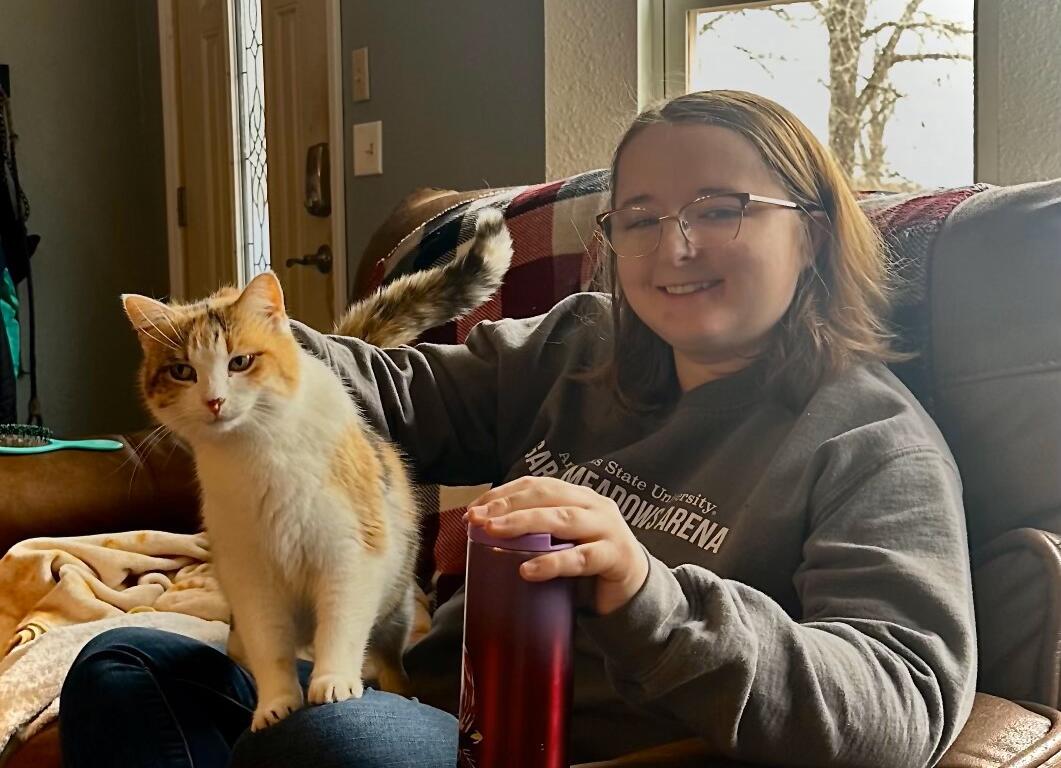Jonesboro, AR – (JonesboroRightNow.com) – Feb. 14, 2025 – An Arkansas State University student has spent over half of her college career helping feral cats on campus.
Emily Peters, a senior studying agricultural science, began her program when she was a sophomore using TNR (trap-neuter-release) methods.
TNR is a humane method of controlling stray and feral cat populations. It serves as an alternative to other programs that aim to control free-roaming cat populations, such as trap-and-kill programs and relocation programs, which are generally considered inhumane and ineffective.
When Peters started attending A-State, she noticed there were a lot of cats running around campus.
“It was overrun with cats,” Peters said. “A lot of these cats were hungry, they were sick, they needed medical attention. They were fighting with each other. A lot of them were getting really beat up.”
Peters said she started thinking about how to help the cats, which introduced her to TNR. Peters’s program uses live traps to capture the cats. The cats are then taken to local veterinarian clinics to be spayed or neutered, vaccinated and receive any other care they need. Once the cats’ care is complete, they are released back into the community.
“Not only are we reducing the population of feral cats, but these cats can also still serve a purpose in our community,” Peters said. “Cats are great pest control. They tend to uplift the spirits of the students, and they like having the cats on campus. It gives them something fun to see. They like naming them and seeing them run around. It’s a win-win for both the cats and the people.”

Peters works with the rescues ARC Angels 4 Animals and Northeast Arkansans for Animals (NAFA), which have helped rehome some of the cats she’s captured.
Although costs may vary, she said the typical low-cost neuter will be about $40 to $50 and around $70 to spay.
“The reason females are so much higher than males is because it is a more intrusive surgery. You are basically performing a hysterectomy. There is more risk of complications. There is more time that goes into it. So, it is more labor from the vets and it is definitely a more strenuous process than it would be for the males,” Peters said.
Peters’s program pays for the spay and neuter procedures, so she relies on monetary donations to cover costs. She said she also needs supplies for trapping.
“I rely on the generous support of the community to help provide supplies for the spay or neuter and trapping. Things like puppy pads, towels, blankets that we can drape over the trap just to make it more quiet and calm, and cleaning supplies, disinfectant, all that kind of stuff,” Peters said.
To donate, email Peters at epeters2519@gmail.com or donate directly on Venmo here. One hundred percent of donations fund the TNR program. To follow her journey, follow her on Instagram at collegiate.cats.astate.
“I’m lucky that there’s a community around here that really cares about animals and really wants to see these animals get help,” Peters said. “That’s been the most fun part of all this, I think; meeting these people and making new friends who share the same kind of passions I do. That’s been really fun.”


